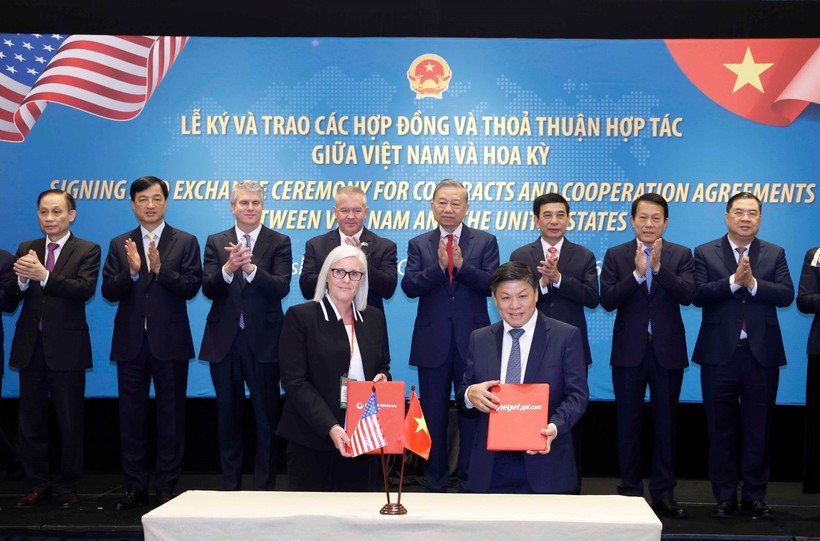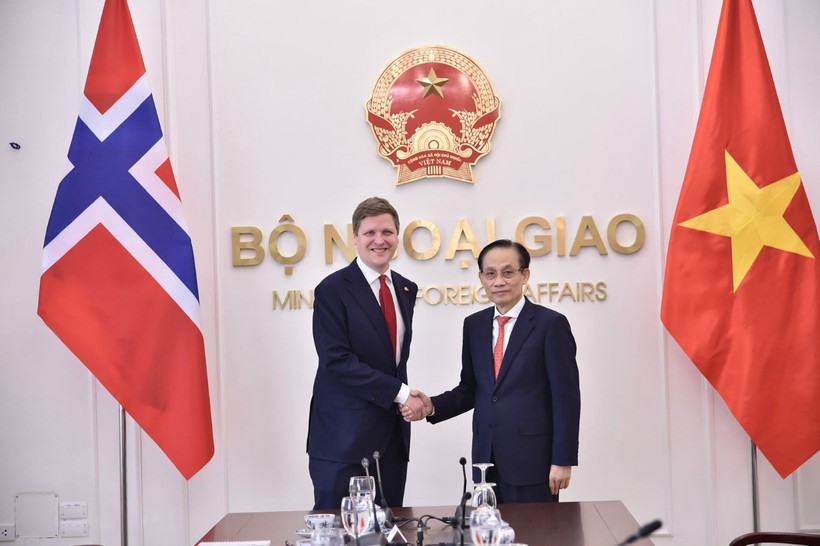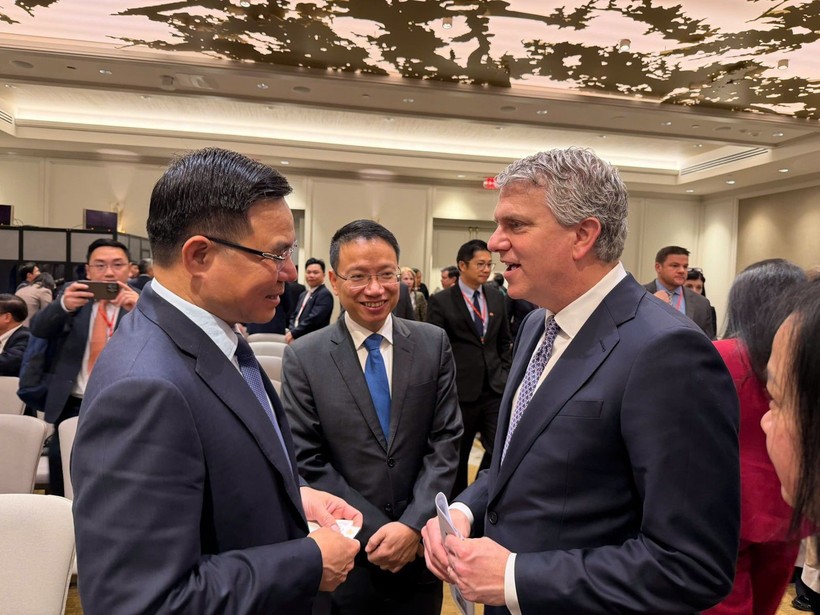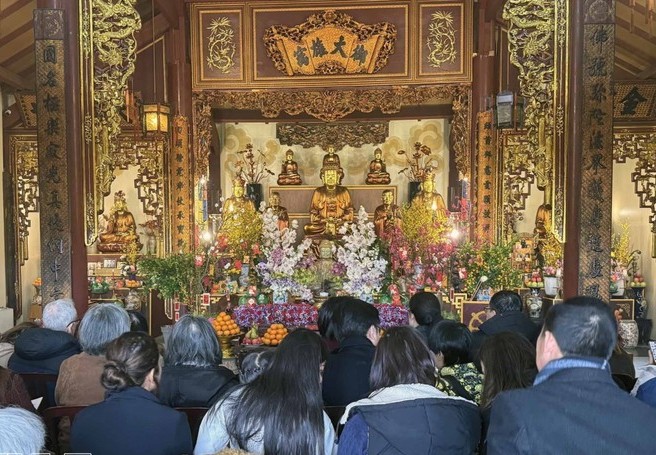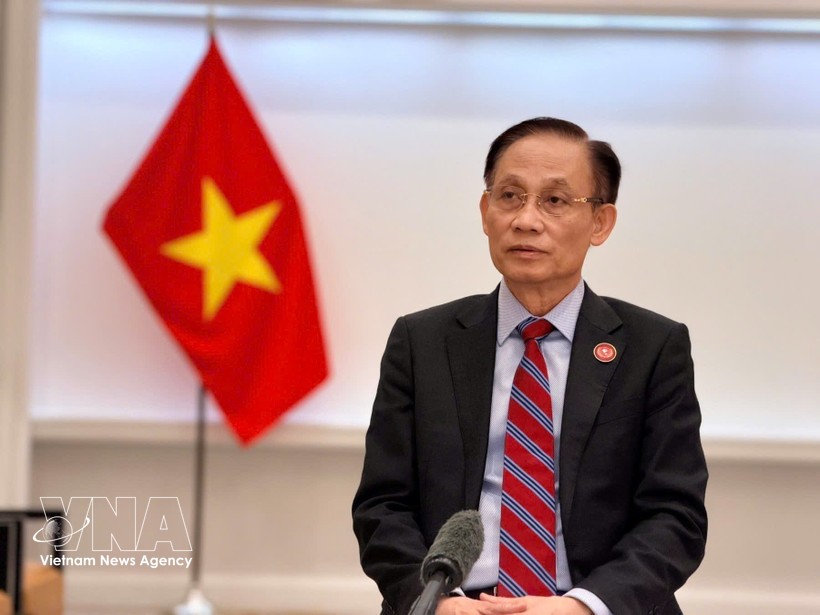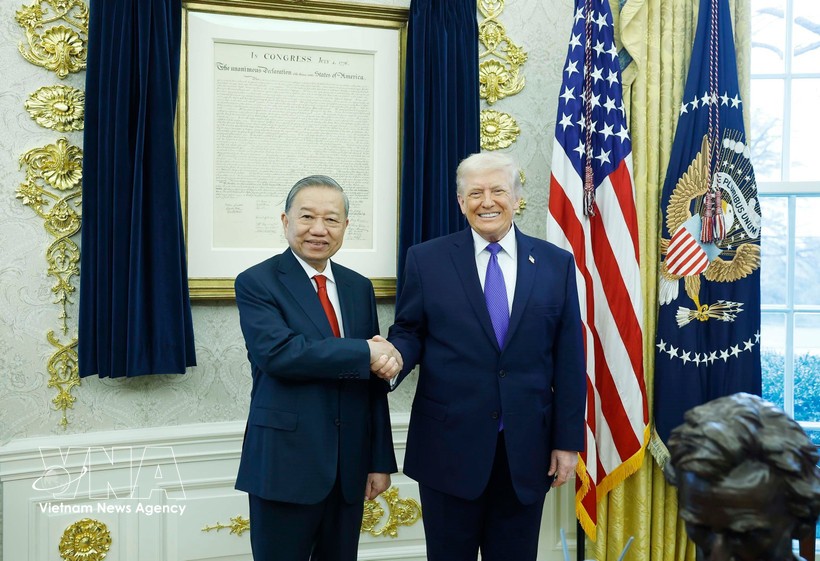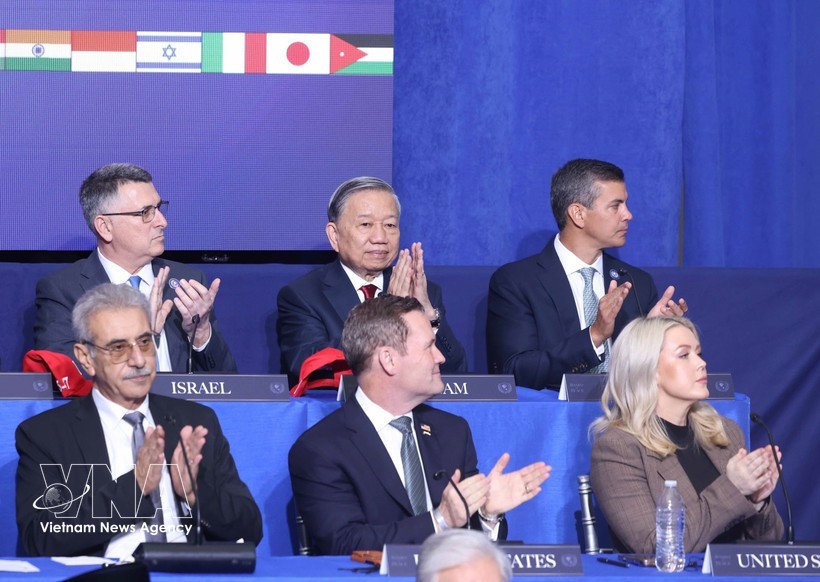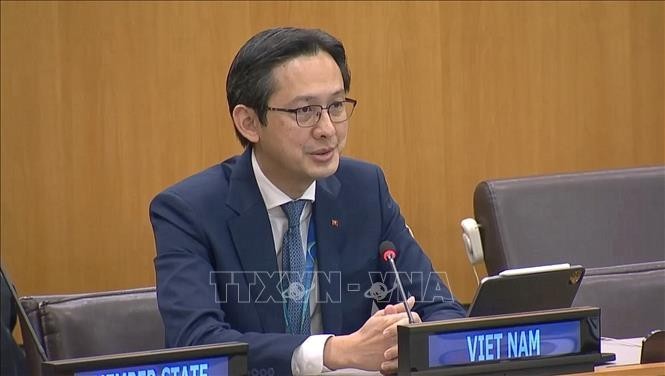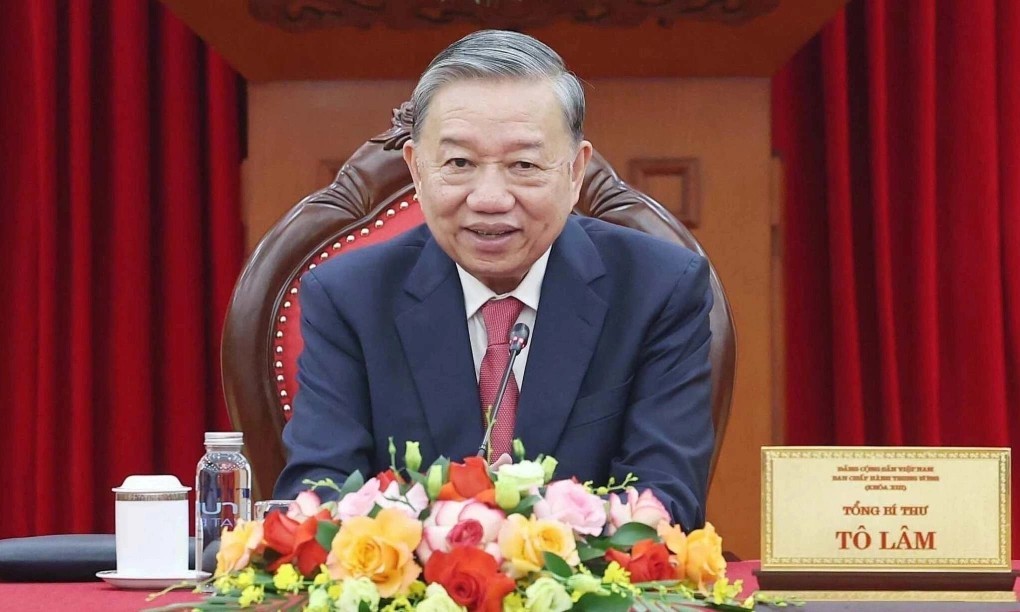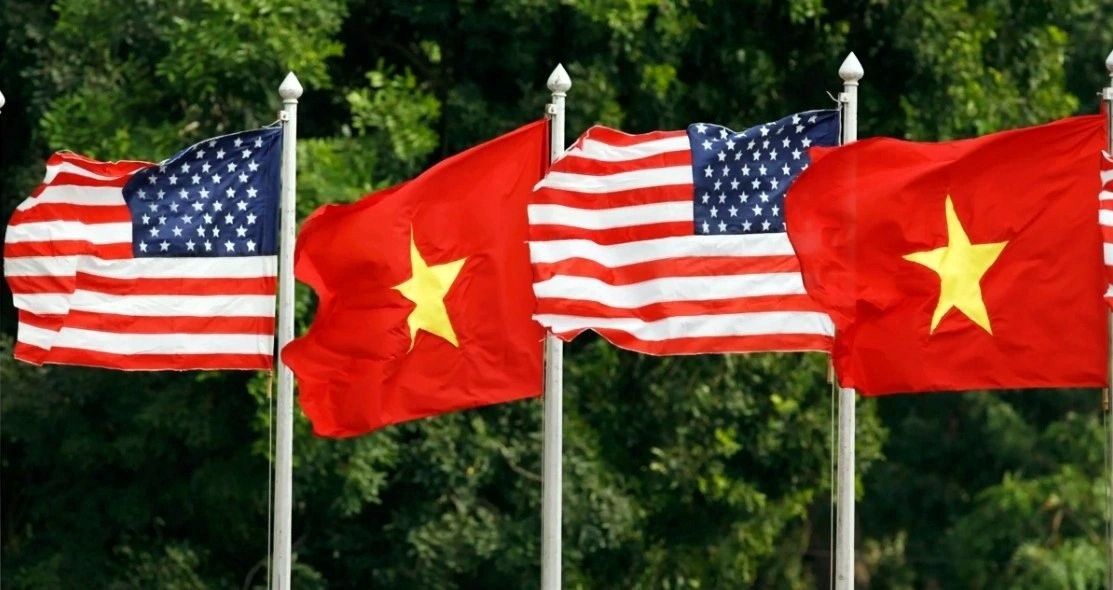| Vietnam News Today (Oct. 13) notable headlines Vietnam–DPRK relations enter a new phase of practical and effective cooperation Vietnam makes remarkable socio-economic progress despite multiple challenges: Deputy PM Vietnam remains one of Cambodia’s leading trade partners Cold front to bring heavy rain to Northern Vietnam for three days Strengthening Vietnam’s cultural identity in the new era Additional 400 billion VND earmarked for flood-hit provinces’ recovery Party chief attends ceremony marking 80th traditional day of Military Region 4’s armed forces Xoan singing – heritage resonating from labour, love of ancestral land Vietnamese cinema: Bright prospects through blockbuster films |
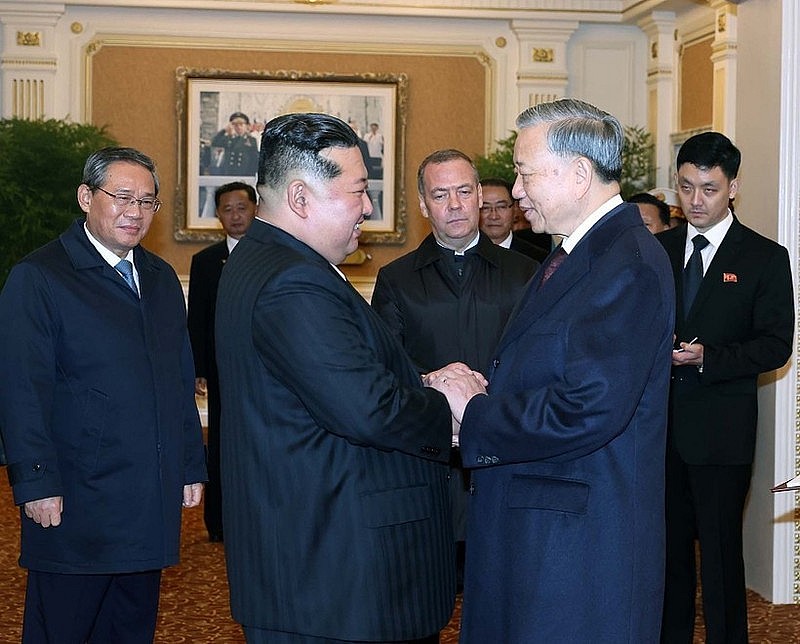 |
| General Secretary To Lam with General Secretary of the Workers' Party of Korea and President of the State Affairs of the DPRK Kim Jong Un. (Photo: VNA) |
Vietnam–DPRK relations enter a new phase of practical and effective cooperation
The State visit to the Democratic People’s Republic of Korea (DPRK) by the high-level Vietnamese delegation marks a significant milestone in bilateral ties between the two Parties and the two nations, ushering in a new stage of practical and effective cooperation.
The visit also contributes to achieving each country’s development goals for the happiness of their peoples, and for peace, stability, cooperation and development in the region and the world.
Despite the cold and rainy weather in Pyongyang in recent days, the reception for the Vietnamese delegation was organised in a solemn and thoughtful manner, ensuring the delegation’s schedule proceeded smoothly.
The DPRK was among the first countries in the world to establish diplomatic relations with Vietnam in 1950. The traditional friendship between the two nations was nurtured by President Ho Chi Minh, President Kim Il Sung and successive generations of leaders from both countries.
The official welcoming ceremony for General Secretary To Lam and the high-level Vietnamese delegation, chaired by General Secretary of the Workers' Party of Korea and President of the State Affairs of the DPRK Kim Jong Un, took place in a warm and friendly atmosphere, attended by senior officials and large crowds of citizens of the DPRK. It was a moving and memorable moment as the people waved red flags with golden stars and cheered to welcome General Secretary of the Communist Party of Vietnam Central Committee To Lam.
This marks General Secretary To Lam’s first visit to the DPRK in his capacity as Party leader, and the first State visit by a General Secretary of the Communist Party of Vietnam to the DPRK in 18 years. The visit comes at a time when the two countries are celebrating the 75th anniversary of diplomatic relations (1950–2025), the Vietnam–DPRK Friendship Year 2025. The visit reaffirms Vietnam’s consistent foreign policy of valuing ties with its traditional friends.
The DPRK was among the first countries in the world to establish diplomatic relations with Vietnam in 1950. The traditional friendship between the two nations was nurtured by President Ho Chi Minh, President Kim Il Sung and successive generations of leaders from both countries.
Over the years, the two sides have signed several bilateral cooperation agreements in areas such as culture, health, civil aviation, mutual legal assistance, investment promotion and protection, and double taxation avoidance. They have also maintained dialogue and cooperation mechanisms such as Deputy Foreign Minister-level Political Consultations and the Intergovernmental Committee for Economic, Trade, Scientific and Technical Cooperation, based on each country’s needs and in line with international regulations.
During the State-level talks, both leaders expressed satisfaction at the continued consolidation and strengthening of ties between the two Parties and countries. They agreed to advance Vietnam–DPRK relations into a new, more practical and effective stage, contributing to each country’s development goals, the happiness of their peoples, and peace, stability and development in the region and the world, cited NDO.
General Secretary To Lam congratulated the DPRK on its remarkable achievements in national construction and development over the past 80 years, expressing his belief that, with the guiding principles of “putting the people at the center”, “great unity” and “self-reliance”, the DPRK would accomplish the goals set by the Workers’ Party of Korea (WPK), ushering in a new era of comprehensive national prosperity.
Vietnam stands ready to share its experience with the DPRK in economic reform, external economic affairs, and socio-economic management policies, while expressing the wish to expand cooperation in areas of mutual strength such as culture, sports, tourism, education, health, information and communications. Both sides also aim to develop broadcasting and television programs to promote the culture, country and people of each nation.
General Secretary of the WPK and President of the State Affairs of the DPRK Kim Jong Un highly valued Vietnam’s cooperation proposals, affirming that the DPRK wishes to work closely with Vietnam in Party building and national development, and is ready to foster cooperation across suitable sectors. He urged Party and Foreign Ministry agencies as well as ministries, sectors and localities of both sides to enhance exchanges and devise concrete measures to effectively implement major orientations for developing bilateral ties, thus bringing Vietnam–DPRK relations into a new phase that delivers tangible benefits to both peoples.
General Secretary To Lam congratulated the DPRK on its remarkable achievements in national construction and development over the past 80 years, expressing his belief that, with the guiding principles of “putting the people at the center”, “great unity” and “self-reliance”, the DPRK would accomplish the goals set by the Workers’ Party of Korea (WPK), ushering in a new era of comprehensive national prosperity.
As part of the visit, the Vietnamese delegation attended an art performance marking the 80th founding anniversary of the Workers’ Party of Korea. The elaborate collective performances, set to stirring revolutionary music and warmly applauded by the audience, provided deeper insight into the source of strength, determination and resilience of the DPRK’s Party, State and people in their efforts to safeguard, build and develop the nation.
Vietnam makes remarkable socio-economic progress despite multiple challenges: Deputy PM
Vietnam has achieved remarkable socio-economic progress over the past tenure, driven by the concerted efforts of ministries and localities to seize opportunities and overcome challenges under the Party and Government’s leadership, Politburo member and Standing Deputy Prime Minister Nguyen Hoa Binh said.
Addressing a group discussion within the preparatory session of the first Congress of the Government’s Party Organisation on October 12, Binh, who is also Standing Deputy Secretary of the Government Party Committee, said these achievements came despite unprecedented pandemic, extreme natural disasters, and a volatile global and regional landscape.
He mentioned the streamlining of political system and reorganisation of administrative units as a highlight in the tenure, noting that this has earned high praise from the international community.
The official called the reorganisation of administrative units a preparation for a new era – the era of acceleration and breakthroughs, creating more space for growth, streamlining bureaucracy, improving the quality of officials, and implementing stronger decentralisation to better serve the people, reported VNA.
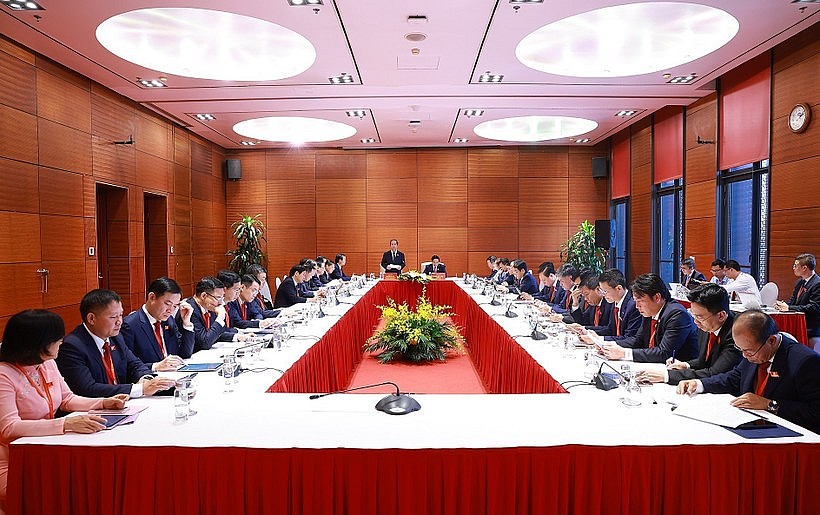 |
| Delegates join a group discussion within the preparatory session of the first Congress of the Government’s Party Organisation on October 12, 2025. (Photo: VNA) |
He lauded delegates’ opinions, particularly on issues still under debate, with all participants seeking solutions for breakthrough development in the new era and aiming to achieve double-digit growth within the set timeframe.
Showing strong agreement with the draft Political Report submitted to the congress, delegates noted that it was carefully and scientifically prepared, comprehensively covering all content, objectively reflecting the outcomes of the 2020–2025 term, and sketching out clear and feasible directions, goals, and solutions for the next term, including six key tasks and three strategic breakthroughs.
They also reviewed the draft documents to be submitted to the 14th National Party Congress, strongly endorsing the assessment of the implementation of the 13th National Party Congress's resolution, which highlighted significant, comprehensive achievements.
However, they also pointed out shortcomings and weaknesses that require the entire Party to earnestly address and strive to overcome in order to usher the country into a new era of rapid and sustainable development and national advancement.
Vietnam remains one of Cambodia’s leading trade partners
Vietnam continues to be one of Cambodia’s most important trade partners in the first nine months of 2025, according to Cambodia’s Ministry of Economy and Finance.
Notably, Vietnam became Cambodia’s second largest export market in the nine-month period, with exports reaching nearly US$3 billion, surpassing both China and Japan among Cambodia’s key export destinations.
Nine-month trade between Cambodia and its major markets hit nearly US$47 billion, an increase of almost 15% compared to the same period last year. Among these, the United States and China were Cambodia’s top trading partners.
Specifically, China was Cambodia’s largest trading partner, with total bilateral trade fetching US$14.2 billion, up 27.5% year on year. However, Cambodia’s exports to China dropped by 7.7% to US$1.18 billion, while imports from China surged by 32%.
Meanwhile, the United States was Cambodia’s top trading partner in terms of export value, with total bilateral trade amounting to US$9.56 billion, up 22.6%. Exports to the United States grossed over US$9.2 billion, according to VOV.
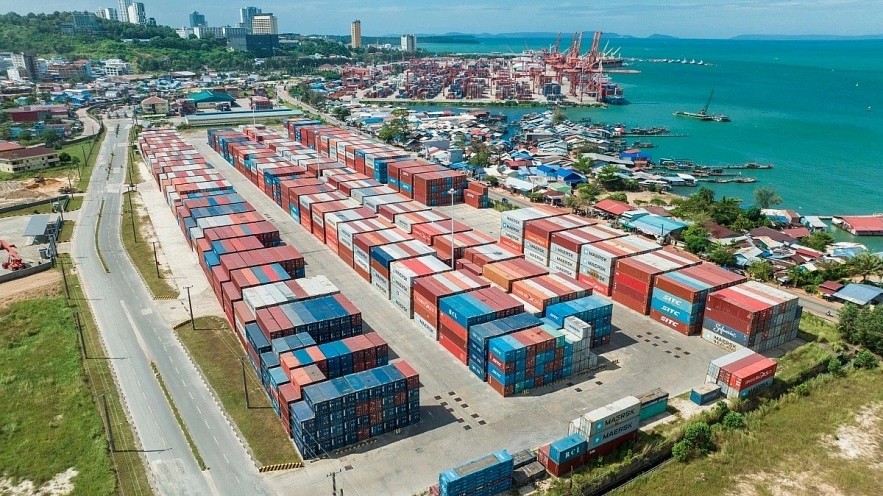 |
| Vietnam has become Cambodia’s second largest export market in the first nine months of 2025. (Illustrative image) |
Cambodia’s major export items continued to include garments, rubber products, footwear, machinery and electronic equipment, furniture, nuts, fruits, and vehicle parts.
Of particular note, Cambodia’s rice export sector maintained strong growth. Since the beginning of the year, the country has earned nearly US$409 million from exporting around 600,000 tonnes of rice to dozens of regional and international markets, with nearly half of the amount sold to Europe, China, and ASEAN countries.
In addition, Cambodia exported more than 5.2 million tonnes of paddy rice to neighbouring countries, mainly Vietnam, earning over US$1.2 billion.
Cold front to bring heavy rain to Northern Vietnam for three days
Northern Vietnam will experience a cold front starting October 13, bringing rain over the next three consecutive days, according to the National Center for Hydro-Meteorological Forecasting.
As the cold front is relatively mild, it is expected to lower temperatures by only 2–3°C, making the weather cooler and more comfortable, said meteorologists.
However, due to the combination of the weak cold air and easterly winds from the subtropical high-pressure system moving westward, rain is likely across the Northern region, especially in the Northeast, from October 13–15.
Experts noted that accumulated rainfall over 24 hours would generally remain below 50mm, so the risk of flooding along rivers is low, reported VOV.
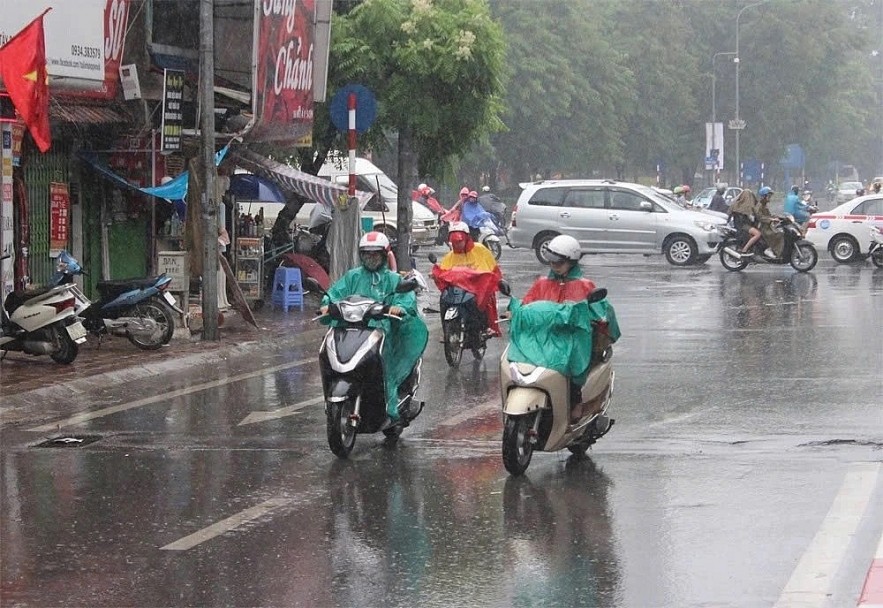 |
| A weak cold air mass is set to bring heavy rain to Northern Vietnam from October 13-15. |
Nevertheless, localized heavy showers and thunderstorms may occur, with rainfall reaching 30–50mm per hour, potentially causing flashfloods, localised inundation, and landslides in some mountainous areas.
The National Center for Hydro-Meteorological Forecasting also reported that starting from October, cold fronts are forecast to increase in intensity and frequency, with stronger activity likely in November and December.
Heavy cold spells could hit Northern Vietnam in late December, with the possibility of extending into February 2026.
Strengthening Vietnam’s cultural identity in the new era
At the Government–localities online conference, Prime Minister Pham Minh Chinh assigned the Ministry of Culture, Sports, and Tourism to work with relevant ministries, sectors, and localities to develop a proposal to designate November 24 as Vietnam’s National Culture Day.
In today’s era of deep international integration, culture serves as a form of soft power, an internal driving force that promotes sustainable socio-economic, scientific, technological, and tourism development. Establishing a symbolic date to honor national culture is therefore timely, reflecting the Party and State’s attention to culture as a key pillar of the country’s development strategy.
The proposed date, November 24, 1946, marks the opening of the first National Cultural Conference, which laid the ideological foundation for Vietnam’s revolutionary culture. The conference brought together intellectuals and artists in the early days of nation-building, affirming the leading role of culture in the struggle for national independence.
Cuu Quoc newspaper, issue No. 416 dated November 25, 1946, published President Ho Chi Minh’s speech, in which he expressed his wish for a new Vietnamese culture built upon the happiness of the people and the nation.
During that period, President Ho Chi Minh also declared that “Culture must light the way for the nation.” Nearly 80 years later, this guiding principle remains profoundly relevant, especially amid digital transformation and globalisation.
Should November 24 be designated as National Culture Day, it would provide an opportunity for society to reflect on the nation’s cultural journey, inspire pride, and encourage the preservation and promotion of Vietnamese identity in a changing world.
However, the establishment of a National Culture Day should be considered comprehensively within the existing cultural policy framework to ensure coherence and effective implementation, NDO reported.
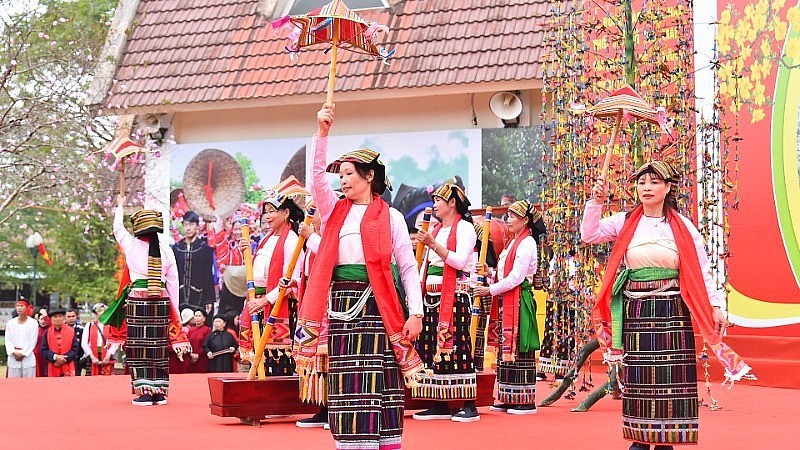 |
| Vietnam Culture Day must genuinely focus on the people, serving as a space to spread and nurture positive values. |
Vietnam already observes several sector-specific commemorative days, such as Vietnamese Stage Day (August 12, lunar calendar), Vietnamese Cinema Day (March 15), and Vietnamese Music Day (September 3). Particularly, since 2005, November 23 has been celebrated as Vietnamese Cultural Heritage Day, a time to honor traditional values and heritage preservation efforts.
Designating November 24 as National Culture Day would thus provide a broader framework that underscores the overarching role of culture in all aspects of social life. It would also complement Cultural Heritage Day, creating a sequence of celebrations that both preserve and innovate upon the nation’s spiritual and cultural values.
The content and activities of National Culture Day should align with the National Target Programme on Cultural Development for the 2025–2035 period, whose first phase (2025–2030) focuses on nine specific objectives and ten key components aimed at improving cultural life and fostering Vietnamese people of the new era — individuals with strong character, moral standards, and a distinct cultural identity.
Above all, National Culture Day must truly serve the people, becoming a space to spread positive values, nurture humanism, strengthen ethics and national spirit. In doing so, it will inspire creativity, resilience, and aspiration among Vietnamese people in the new era.
Culture will indeed “light the way” when expressed through concrete actions and daily behavior, shaping a healthy, humane society.
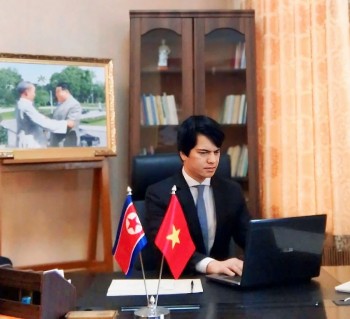 | Vietnam News Today (Oct. 9): Vietnam and DPRK Look Towards Stronger Bilateral Relations Vietnam News Today (Oct. 9): Vietnam and DPRK look towards stronger bilateral relations; Vietnam, Singapore young officers enhance exchanges, cooperation; Vietnam poised to become ASEAN’s ... |
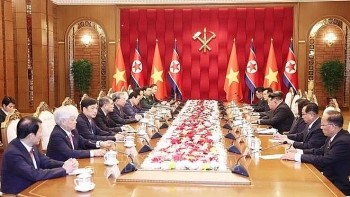 | Vietnam News Today (Oct. 10): Vietnam, DPRK Vow to Take Bilateral Ties to New Heights Vietnam News Today (Oct. 10): Prime Minister addresses FIATA World Congress 2025 in Hanoi; Vietnam calls for further international support following recent storms; Vietnam, DPRK ... |








